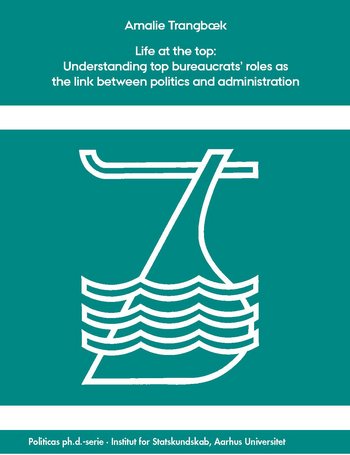Amalie Trangbæk
Life at the top: Understanding top bureaucrats’ roles as the link between politics and administration

Top civil servants act in the nexus between bureaucracy and politics. They connect the political and the administrative levels and are thus close collaborators of both politicians and civil servants. When they provide advice and assist their minister, they influence decisions and thereby society and citizens’ everyday life. Although top civil servants are ubiquitous in politics, we know little about their work life. This dissertation therefore sets out to explore their practices and roles. It focuses on the highest-ranking civil servants in Denmark – permanent secretaries – and draws on theories about top civil servants’ roles, behavior and skills. Using an abductive logic of inquiry, the author shadows eight permanent secretaries and interviews permanent secretaries, ministers and heads of section. The analysis is divided into four parts investigating the imperatives of permanent secretaries and their relations upwards, downwards and outwards. The dissertation provides a nuanced perspective on what permanent secretaries actually do. It illustrates how they navigate between several practices and roles, and points to five characteristic practices: cohering, connecting, coordinating, delegating and protecting along with three overall roles: being the minister’s right hand, advisor and CEO of the ministry. Furthermore, the dissertation contributes to the theoretical debate about top civil servants by stating that permanent secretaries resemble stewards more than agents, that there seems to be a continuously changing relation between top civil servants and politicians, and by suggesting a subdivision to the term functional politicization, namely a distinction between uncritical functional politicization and reflexive functional politicization.
![]() Ophavsretten tilhører Politica. Materialet må ikke bruges eller distribueres i kommercielt øjemed.
Ophavsretten tilhører Politica. Materialet må ikke bruges eller distribueres i kommercielt øjemed.